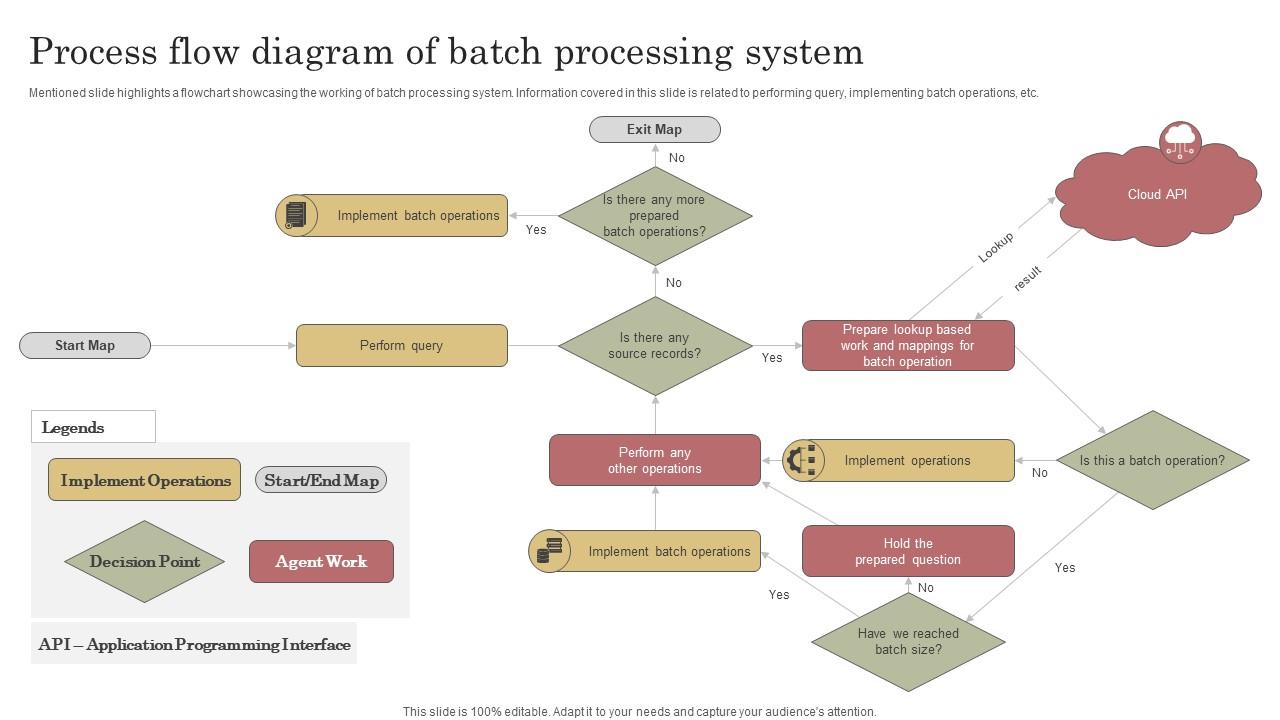RemoteIoT batch job processing has become an essential aspect of modern data management for businesses and organizations that rely on remote data collection and analysis. As more companies adopt IoT (Internet of Things) technology to monitor and manage their operations, understanding how batch jobs work in a remote environment is crucial. This article will provide a detailed overview of remote batch job examples, their applications, and how they contribute to efficient data handling.
In today's fast-paced world, businesses need reliable systems to process large amounts of data collected from remote sensors, devices, and other IoT-enabled equipment. By implementing RemoteIoT batch job processes, organizations can ensure that their data is consistently analyzed, stored, and utilized effectively. This approach not only enhances operational efficiency but also reduces the burden on real-time processing systems.
As we explore this topic, we will delve into various aspects of RemoteIoT batch job examples, including implementation strategies, best practices, and real-world applications. Whether you're a developer, IT professional, or decision-maker, understanding the principles behind remote batch processing will help you make informed decisions about your organization's data management strategy.
Read also:Pining Kim By Trailblazer An Indepth Look At Her Journey Achievements And Impact
Table of Contents
- Introduction to RemoteIoT Batch Job
- Key Concepts of Remote Batch Processing
- Benefits of RemoteIoT Batch Job
- Common Applications
- Best Practices for Implementation
- Tools and Technologies
- Challenges and Solutions
- Real-World Examples
- Future Trends
- Conclusion
Introduction to RemoteIoT Batch Job
A RemoteIoT batch job refers to the process of scheduling and executing data processing tasks in a non-real-time environment using IoT devices. These jobs are designed to handle large datasets collected from remote locations, such as weather stations, industrial equipment, or agricultural sensors. By processing data in batches, organizations can optimize resource usage and reduce latency issues associated with real-time processing.
Why RemoteIoT Batch Jobs Are Essential
RemoteIoT batch jobs play a critical role in modern data-driven operations. They allow organizations to:
- Process large datasets efficiently
- Reduce the load on real-time systems
- Improve data accuracy and consistency
- Enable better decision-making through comprehensive analysis
Basic Components of a Batch Job
Each RemoteIoT batch job consists of several key components, including:
- Data collection from remote devices
- Data storage and preprocessing
- Execution of predefined algorithms
- Output generation and reporting
Key Concepts of Remote Batch Processing
Understanding the core concepts of remote batch processing is essential for implementing effective solutions. Below are some fundamental principles:
Data Synchronization
Data synchronization ensures that all remote devices and central systems are aligned in terms of data collection and processing. This process involves periodic updates and validations to maintain consistency across the network.
Scheduling and Automation
Efficient scheduling and automation of batch jobs are critical for optimizing resource usage. By automating repetitive tasks, organizations can minimize human intervention and improve overall system performance.
Read also:Jo Frosts Husband A Comprehensive Look Into Her Personal Life And Beyond
Benefits of RemoteIoT Batch Job
Implementing RemoteIoT batch jobs offers numerous advantages, including:
Cost Efficiency
Batch processing reduces the need for high-performance real-time systems, resulting in significant cost savings. Organizations can allocate resources more effectively and focus on critical tasks.
Scalability
RemoteIoT batch jobs can be easily scaled to accommodate growing data volumes. This flexibility allows businesses to adapt to changing demands without compromising performance.
Common Applications
RemoteIoT batch jobs are widely used across various industries. Some notable applications include:
Smart Agriculture
In agriculture, IoT devices monitor soil moisture, temperature, and other environmental factors. Batch processing enables farmers to analyze this data and make informed decisions about irrigation, fertilization, and pest control.
Industrial Automation
Manufacturing plants rely on IoT sensors to monitor equipment performance and production processes. Batch jobs help analyze historical data to identify trends and optimize operations.
Best Practices for Implementation
To ensure successful implementation of RemoteIoT batch jobs, consider the following best practices:
Define Clear Objectives
Before implementing a batch processing system, clearly define your goals and expected outcomes. This will guide the development and deployment process.
Choose the Right Tools
Select tools and technologies that align with your organization's requirements and infrastructure. Popular options include Apache Spark, Hadoop, and AWS Batch.
Tools and Technologies
Several tools and technologies are available for RemoteIoT batch job processing. Some of the most widely used include:
Apache Spark
Apache Spark is a powerful open-source framework for large-scale data processing. Its ability to handle batch and streaming data makes it an ideal choice for RemoteIoT applications.
AWS Batch
AWS Batch simplifies the execution of batch computing workloads in the cloud. It integrates seamlessly with other AWS services, providing a scalable and cost-effective solution for remote data processing.
Challenges and Solutions
While RemoteIoT batch jobs offer many benefits, they also present certain challenges. Below are some common issues and their solutions:
Data Security
Ensuring the security of data transmitted between remote devices and central systems is a top priority. Implementing robust encryption and authentication protocols can mitigate potential risks.
Network Latency
Network latency can affect the performance of batch processing systems. Using edge computing techniques and optimizing data transfer protocols can help reduce delays.
Real-World Examples
Several organizations have successfully implemented RemoteIoT batch jobs to enhance their operations. Below are a few examples:
Example 1: Smart City Initiatives
In smart city projects, IoT sensors collect data on traffic patterns, air quality, and energy consumption. Batch processing enables city planners to analyze this data and develop strategies to improve urban living conditions.
Example 2: Healthcare Monitoring
Hospitals and healthcare providers use IoT devices to monitor patient vital signs remotely. Batch jobs help process and analyze this data, enabling early detection of potential health issues.
Future Trends
The future of RemoteIoT batch job processing looks promising, with advancements in technology driving innovation. Key trends to watch include:
Edge Computing
Edge computing allows data processing to occur closer to the source, reducing latency and improving efficiency. This trend will play a significant role in the evolution of RemoteIoT batch jobs.
Artificial Intelligence Integration
Integrating AI algorithms into batch processing systems will enable more advanced analytics and predictive capabilities, further enhancing decision-making processes.
Conclusion
RemoteIoT batch job processing is a vital component of modern data management strategies. By understanding the principles, benefits, and applications of batch jobs, organizations can harness the power of IoT technology to drive innovation and efficiency. We encourage readers to share their thoughts and experiences in the comments section below. Additionally, don't forget to explore other articles on our website for more insights into cutting-edge technologies and trends.
Remember, staying informed and proactive is key to success in the ever-evolving world of technology. Join the conversation and help shape the future of RemoteIoT batch job processing!


